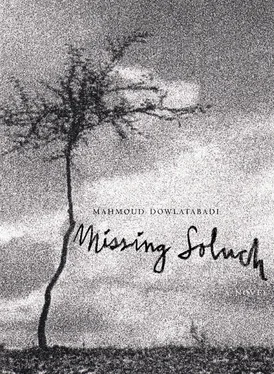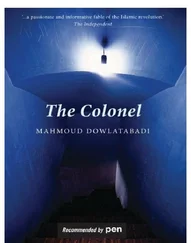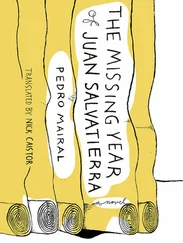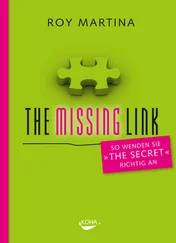It was a short ways to God’s Land. The distance of a few arrow shots. On the way, the boys played leapfrog, a game that lent itself to running, jumping. One would lean over and the other would leap over his back, and then run four or five steps before leaning over so the first could leap over him. It was exciting tying up the feet of the players with the skill and agility involved, sending them into peals of laughter that made the distance seem shorter.
Playing a trick, Abbas leaned over but then suddenly leapt ahead, throwing himself on his belly like a lizard. Abrau came racing behind him expecting to leapfrog over his back, but he couldn’t slow his footsteps once Abbas slipped out from under him. Stumbling, he fell and tumbled and rolled, with a bitter laugh and a wounded look in his eyes. Abbas doubled over himself with laughter, holding his sides with his hands. Abrau brushed the dust from his head and face and began walking away. Abbas chased him and caught up, saying, “Are you upset?”
“No! But you’re nothing but a spoilsport.”
Abbas picked up laughing again, saying, “Ali Genav’s found me some work. Herding camels for his father’s cousin.”
Abbas replied, “Ali Genav? He keeps hanging around our house. He feels sorry for us ever since our father’s left us … Do you think our father will ever return?”
“Let him go to hell! If he wants to, he can come back. Otherwise, he can stay away. What good was he when he was here, and what have we lost since he’s gone?”
“At least he used to be here.”
“It’s better he’s not here now! All he gave us was dry bread and beatings. Now we just have dry bread. What more could he do for us?”
“But at least he was our father. Just his shadow was a good thing for us.”
“There are kids without fathers everywhere. It’s not as if we’re the first ones. And now we’ve picked ourselves up from the dirt ourselves — we can pay for our own bread. We’re not going to starve.”
“There’s more than bread and being hungry, though. It hurts — just the way people look at us as orphans. Didn’t you notice how Karbalai Doshanbeh treated us, the bastard?”
“It wouldn’t be any different if Soluch were here!”
“In any case, I miss him sometimes.”
“I don’t.”
“He used to take me to God’s Land with him.”
“He would take me to dig wells.”
“In the spring, he’d prepare the soil and I’d plant the seeds.”
“I’d wait at the top by the well wheel, and he’d go down into the well. He’d fill the bucket with dirt and I’d pull it up.”
“Sometimes, just before he left, I’d prepare the clay for a bread oven he was working on. He told me I had good hands for spreading clay.”
Abbas became angry. “Okay, that’s enough reminiscing; if he wants to disappear on the other side of the world, let him!”
God’s Land was covered with dark streaks of gravel that followed along the stretches of snow still unmelted. Abbas leapt up from the side of the stream and ended their conversation. They were on their own land. They left their sacks beside the stream and Abrau picked up the hoe. Abbas pointed to one spot of land and they walked over to it. They both busied themselves digging at the wet earth. The top layer of soil was muddy and stuck to their hands. The next layer was less so, and farther down, the soil only bore the darkened hue of moisture. Abbas rolled the cuff of his trousers up to his knees and stepped into the hole he had just dug. The hole was as deep as the top of his knee. The soil was such that it held the moisture, and a watermelon plant could easily spread its roots into it.
Abrau said, “Shall we dig somewhere else?”
“You’re so confused all the time! In this kind of soil you don’t have to dig in different places. It’s not like those places where you have to see how deep the moisture is where the rain collects, and how deep it is elsewhere. This soil is sandy — if you don’t believe me, go dig by the edge of the gravel there. It’s not level ground, so the water won’t gather there itself. But I’ll bet you it’s even more moist than over here, since its soil is softer.”
From the wilderness beyond the gravel, Sanam’s son, Morad, was approaching. He had a bundle of kindling on his back and with each step sank ankle-deep in the wet earth as he went, leaving a path of deep footsteps behind him. As soon as he noticed the brothers, he changed course and began walking toward them.
“Hey there!”
Morad set his bundle of kindling against the steep embankment of the stream.
The brothers headed toward him. Morad loosened the binding that held the bundle on his back, releasing it. “The reeds are all moist, damn them! They’re heavy. I’m exhausted just trying to walk in this soil. I’m knee-deep in the mud. See how I’m covered in sweat!”
It was true. His entire back and the area under each arm was drenched in sweat. He took the edge of his shirt and wiped the sweat from his brow and ears. He sat back, leaning on the bank of the stream, and shut his eyes. Sweat had dripped into his eyes, which were now red and burning. Morad opened an eye and asked, “You were checking the moisture of the soil, no?”
“Yeah … that’s right. What about you? Aren’t you planning to plant this year?”
“Not me. But my brother won’t give up. As for me, I’m not willing to throw myself on the bull’s horns just for a handful of soil.”
Abbas did not pick up on what Morad was referring to, so he asked, “What bull’s horns?”
“They’re registering all of this land. Mirza Hassan’s leading them. Salar Abdullah and Kadkhoda Norouz and Zabihollah are all working together. They’re talking about getting a tractor and a water pump. In addition to God’s Land and Kalqar Valley, they’ve got designs on the fields of Bandsar as well. Salar Abdullah himself was at our house on Friday. But my brother won’t accept their offer, even though my mother’s knees went weak as soon as she heard the sounds of a few coins jingling. Although, if I know my brother, he’ll eventually give in. Salar Abdullah will put an end to his indecision with a couple of red bills.”
“Is Salar Abdullah laying claim to other people’s property? That’s theft, isn’t it?”
Morad replied, “He doesn’t recognize the land as belonging to other people. That’s why it’s called what it is — God’s Land!”
“So what if it’s called that? Right now, it’s in the hands of God’s servants.”
“Salar claims that he’ll make the land productive.”
“Ha! Make it productive! So what are we doing, then? Ruining it?”
“What do I know?”
“So what is everyone else doing about this? What about Ghodrat’s father, the others?”
“They’re going to buy them all off one by one. They’re giving them promises and presents.”
Abbas’ eye shone. “You mean they’re handing out cash?”
“Maybe, I’m not sure.”
Abbas was silent. It was clear he was trying to determine what the most profitable approach to the issue was. Morad leaned back on his bundle. Abrau raised his head and said, “What about you, Morad? What are you thinking of doing?”
“I’m leaving. I’ve never really cared about this place. So I want to go somewhere where I know that when I work from morning to night, I’ll be paid that night for my work. I went to Gonbad last year. The year before, to Varamin. This year, if I have to, I’ll go as far as Ahvaz even. Wherever my heart is happy. What about you? Are you sticking around?”
“We don’t know!”
Morad shifted the bundle and began to tie the rope around his chest again. “I hear that Ali Genav’s doing a favor for you.”
It was clear what he was implying from the tone of his voice. Abbas said, “You mean shepherding his cousin’s camels? That’s not been settled yet.”
Читать дальше












